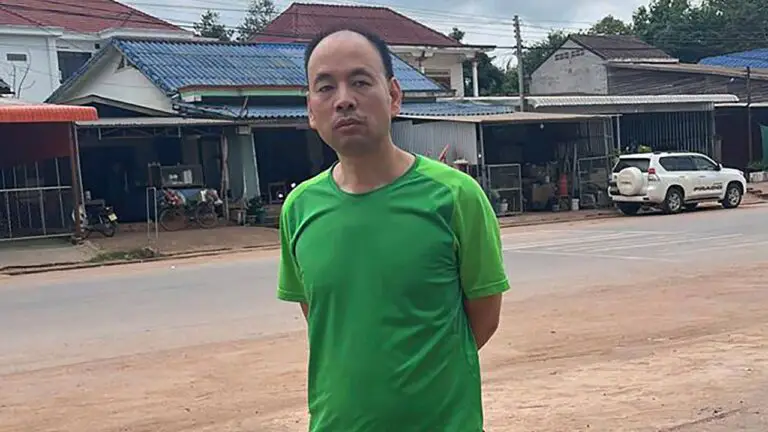Chinese Human Rights Lawyer Deported from Laos to China
A human rights lawyer, Lu Siwei, who had been arrested in neighboring Laos, has been deported back to China despite pleas from rights groups and United Nations experts for his release. Lu Siwei had lost his legal license for handling sensitive cases and was attempting to escape China when he was detained in the Southeast Asian country earlier this summer.
According to Lithnarong Pholsena, Lu's attorney, officials at the prison where Lu was held confirmed that Chinese authorities had taken Lu and other Chinese citizens, detained in Laos, back to China this week.
Bob Fu, a Texas-based Christian activist who was assisting Lu, expressed that Laos violated international law by deporting Lu to China. There are concerns among Lu's family and activists that he may face imprisonment and torture upon returning to China.
Lu Siwei's Courageous Legal Career
Lu Siwei was known for taking on sensitive cases and defending individuals targeted by the Chinese authorities. China’s legal rights movement has been under heavy scrutiny during Xi Jinping's leadership. In 2015, a significant crackdown on activists and rights lawyers, known as the "709 Crackdown," took place.
Lu's legal career took a turn in 2021 when he lost his license after representing a Hong Kong pro-democracy activist who attempted to escape to Taiwan. Later that year, Lu discovered he was not allowed to leave China when he tried to pursue a visiting fellowship in the United States.
For over a year, Lu had been separated from his wife and daughter, who had resettled in the United States in 2022. He fled China in late July, crossing into Vietnam and then into Laos. Laotian authorities detained him while he was boarding a train bound for Thailand, where he intended to catch a flight to join his family in the United States.
Controversial Visa Claim
Lu was charged with using a fake visa to enter Laos, as stated by Lu's attorney Pholsena, citing documents from Laotian prosecutors. However, Fu, the activist assisting Lu, disputed this assertion, providing images of Lu's visa as evidence that it was authentic.
In August, 68 rights groups jointly expressed concern about Lu's arrest. The statement highlighted Beijing's increasing pursuit of dissidents and vulnerable groups overseas, often resulting in their disappearance for extended periods. A group of U.N. experts also called for Lu's release.
Deportation and Silence
On Monday, Chinese authorities formally requested Lu's return, accusing him of illegally crossing national borders, according to Pholsena and an extradition document posted online. Shortly after, Lu was transported back to China.
Lu's wife, Zhang Chunxiao, declined to comment, stating she lacked the strength to make an immediate statement. The Chinese foreign ministry did not immediately respond to requests for comment, and contact attempts with the Laotian foreign ministry and embassy in Beijing went unanswered.
Zhang confirmed that while in China, Lu was under surveillance but was not being investigated or charged with a crime. Dissidents fleeing from China have reported harassment in other Southeast Asian countries, emphasizing the challenges they face even outside China's borders.

